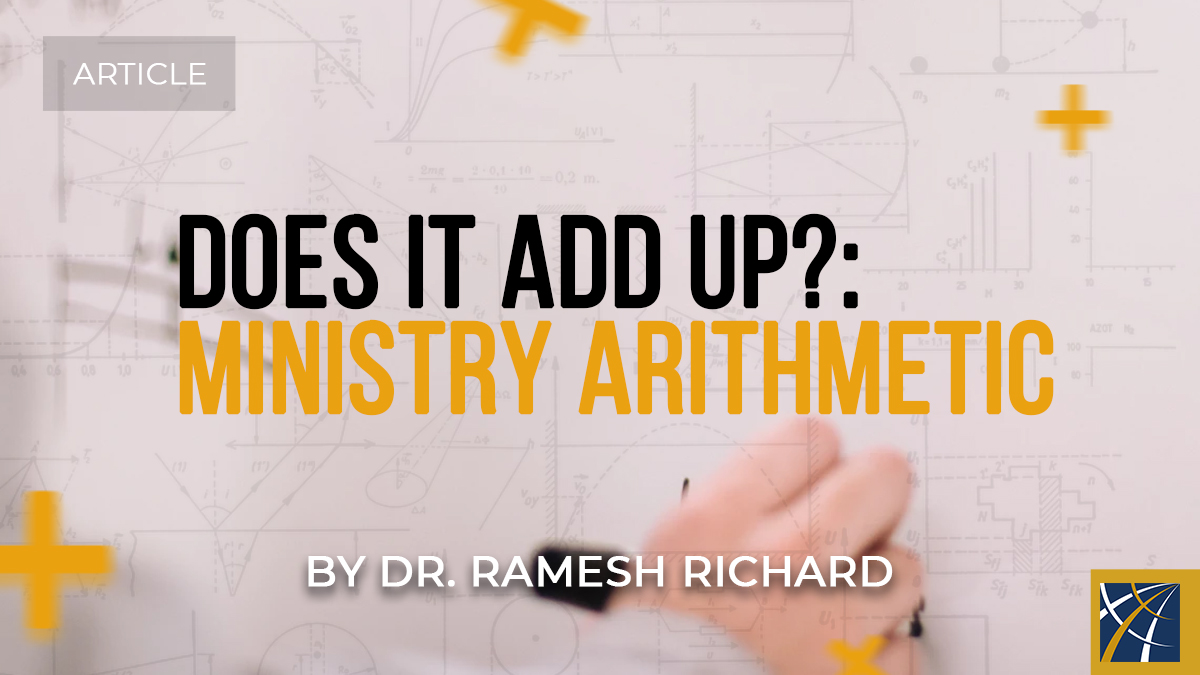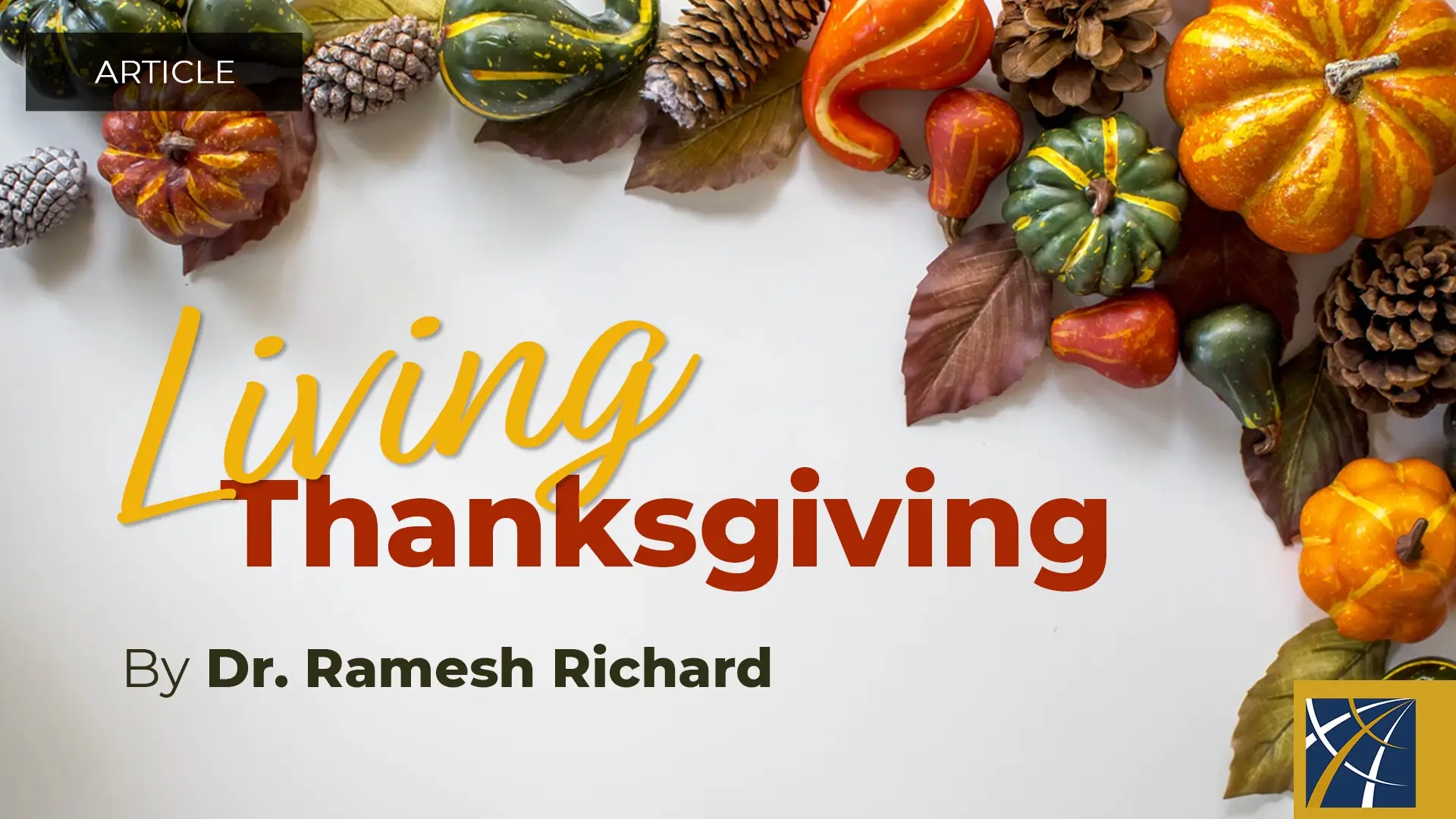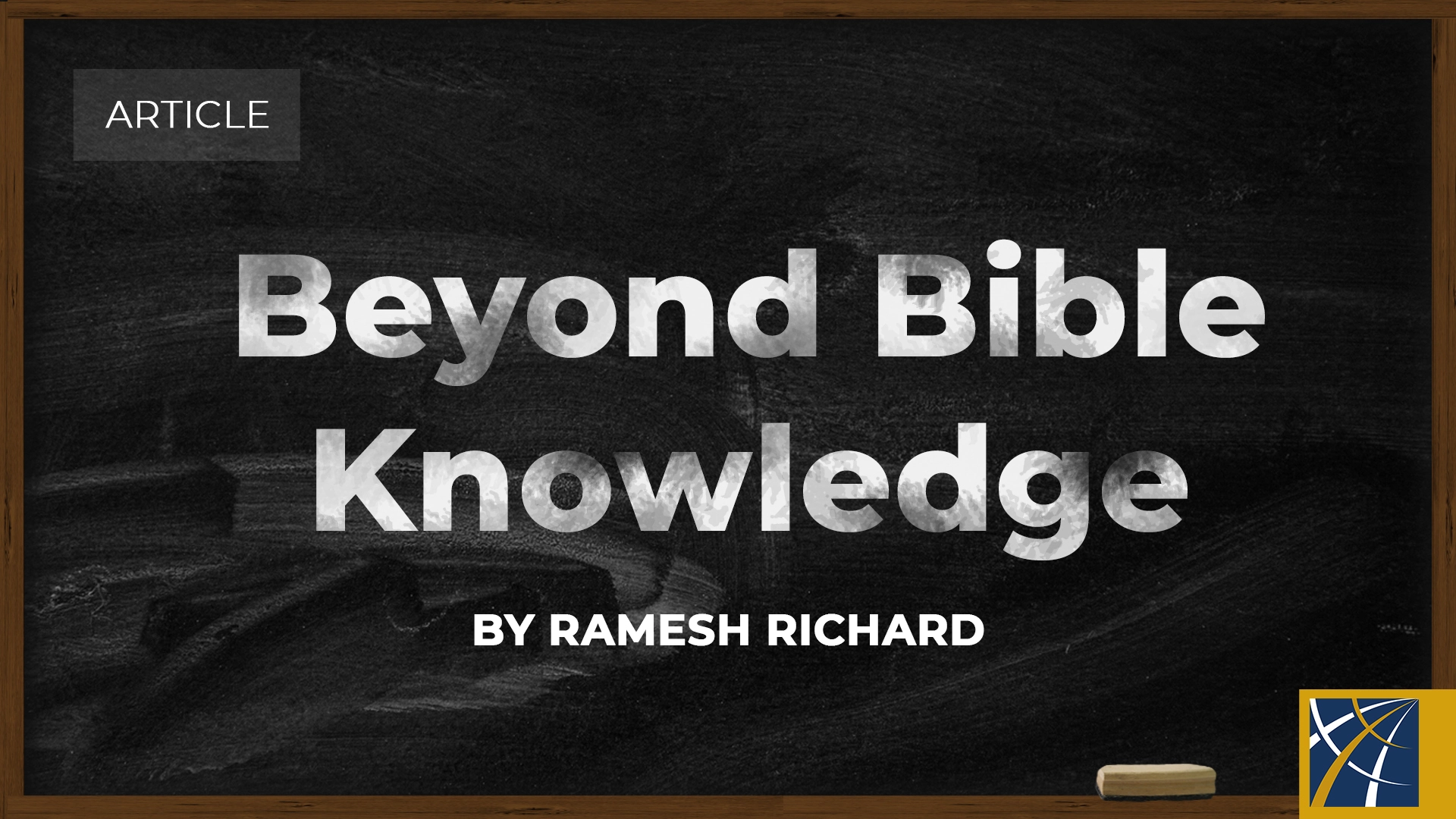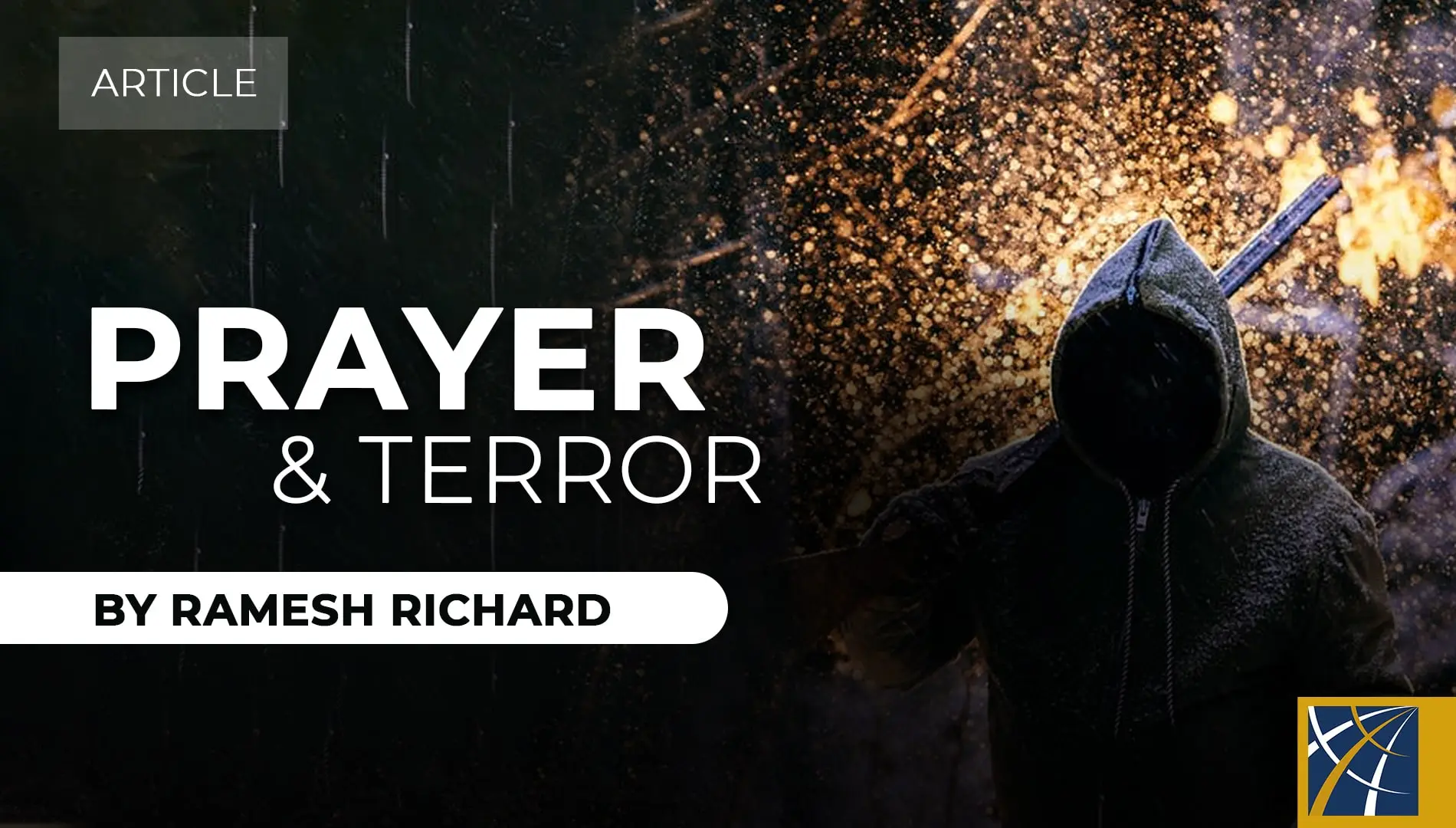by Ramesh Richard
Our town of Richardson, not named after me, spans about 40 square miles and comprises 35,000 students in a population of 190,000. Last night, our 17-year-old Sitara, whose name literally means “star,” was recognized for her basketball prowess by the Richardson Independent School District. I am justifiably proud of her, as she was nominated and chosen unanimously to the All District team. In the only district game her team won last season, Sitara had 31 points with six three-pointers, breaking records in most points and three-pointers scored in a single game. (This is Daddy talking!)
But this Daddy does more than talk—I also whistle. Not any ordinary whistle, not a musical whistle, but a unique communication tool between Dad and kids. My children have recognized Dad’s double-shrill whistle their entire lives. Instead of shouting their names across a football field, a schoolyard, or a crowded overseas market, my whistle gets their attention. They know Dad’s whistle, and they respond by showing up.
I didn’t predict, however, that my whistle would serve as an entire communication system when Sitara took to the basketball court. One of the parents who sat across the basketball banquet table asked about my whistle. “It seems like when she hears your whistle, her spirit picks up. Tell us about it.” And so I explained our system to them. To Sitara, my whistle communicates four important realities about her earthly father.
Presence
Sitara’s Pearce Mustangs warm up for 30 minutes before the game. As they go through the final routines, Bonnie and I make our way into the crowd. My double whistle slices through sound barriers. We do not make eye contact, but she knows Dad has arrived. I try to make over 80 percent of her games, but when I’m out of town my whistle is absent— she has to play without Dad’s affecting support. But when I am there, she knows it because she recognizes my whistle above the roar of the crowd—she can even pick it out from competing noises, distracting sounds, and copy-cat whistles. Dad and daughter operate on a personal wavelength.
When King David asks, “where shall I flee from your presence?” (Ps. 139:7), he is stating something profoundly simple. To the exiled who are covered by darkness, circled by despair, confronted by danger, Yahweh’s presence is perceivable. One commentator writes, “As at night, this darkness enables the psalmist to peer deeply into the heavens and into the depths of human existence, perceiving the presence of Yahweh, otherwise hidden by the glare of daylight.” The Lord makes himself known to the dependent and desirous, not to the distant in heart.
To those who grow in an internal relationship with the Lord, He will be identifiable and discernible within the external hold of circumstance. While invisible, He is not inaudible. He speaks now from that which He has spoken before. He contemporizes His Word in present terms. Attach your heart to Him through time in His Word to detect His “whistle,” above the seductive, distractive cheers. His Word denotes God’s presence with you.
Engagement
Sitara hears two whistles for two points, three for three points, one whistle for every assist and defensive play. The crowd makes noise. Parents yell at referees. The cheerleaders go through their chants. But my whistle tells her that Dad is engaged in and during the game. On occasion, she looks up to see me chatting with a neighbor, reading the newspaper, or texting on the phone, but only during a timeout or when she is sitting out for a quick rest. One time, when she took advantage of a foul for a four-point play, I whistled myself hoarse. I’m there, with her, watching her, watching over her.
God’s presence is not passive. It is an engaged presence. In Genesis, Jacob dreams of God standing above the angels who ascend and descend on a two-way ladder between heaven and earth. There God affirms His unbreakable promise to his fathers and promises him His unmistakable presence. “Behold, I am with you and will keep you wherever you go, and will bring you back to this land; for I will not leave you until I have done that of which I have spoken to you.” Waking up, Jacob exclaims, “Surely the [presence of the] LORD is in this place; and I did not know it.” (Gen. 28:15ff). The “abiding and engaged presence of God” tradition reverberates throughout Scripture to those engaged with Him and in His service. To Joshua, God says, “I will be with you like I was with Moses” (Josh. 1:5). David promises Solomon: “Be strong and of good courage, and do it. Fear not, be not dismayed; for the LORD God, even my God, is with you. He will not fail you or forsake you, until all the work for the service of the house of the LORD is finished” (1 Chron. 28:20). To His disciples, Jesus says, “I will be with you till the end of the age” (Matt. 28:20), fulfilling the meaning of Immanuel, “God with us” that bookends the gospel of Matthew. When you are accomplishing the Great Commission, “I’m there, with you, watching you, watching over you.”
This “withness” of God is not merely the availability of God in general, as a function of His omnipresence. Deeper than a “dad-will-always-be-there-for-you” concept, those in a vital relationship with God experience His engaged presence with them. By oath, He cannot remove Himself from the life of His children. He does not remove Himself from you. He is totally present and fully engaged in your life. In this economy of the Holy Spirit, He indwells, accompanies, precedes, empowers, succeeds, and surrounds you in the game of life. He will not cast you away from His presence (cf. Ps. 51:11), though we can cast away His influence from us. We may quench His enthusiasm, suppress His eagerness and stifle His initiatives for our spiritual vitality (cf. 1 Thess. 5:19). His engaged presence is impeded, shelved, and neglected if we dismiss His role in the plays of life. However, the engaged presence of God is active, alive, and alert on our behalf as we solicit and revel in His presence with us.
Assurance
Sitara never gives up, even if a definite loss looms ahead. Though the team sometimes gives up, she doesn’t. Why? The game is not over until the bell rings, “the fat lady sings,” and the referee’s whistle blows. Perhaps there will be a late-game turnaround. Why not give up? She could still excel personally, increase her scoring average, and overtake players on the opposing team. But ultimately, why? Because her dad has not given up on her. If I didn’t whistle after a play, she’d ask me why I didn’t whistle after her seventh basket! In fact, she may lose count of her points, but does not lose awareness of my whistle. She draws firepower from my whistles. For they are more than proof of my presence and my participation, they shore up her courage.
The writer of Hebrews (13:5) finds personal assurance and draws personal courage in the face of plausible trouble by citing God’s “I will never desert you nor abandon you” (cf. Deut. 31:5). The writer picks some of the strongest and most decisive words in his language for negation and affirmation. Indeed, God assures you: “I will never, no never, in the present or the future, in any conceivable circumstance, ever leave you in the lurch or abandon you in the race of life.” Or to understate the strong words, “it’s rather impossible for the Lord to abandon you! So take heart. Stay the course. Finish the race. Don’t give up. Quit quitting. Keep playing till I call the game.” Men may desert and abandon us, but God will never ever forsake His children. It may seem like the game is over, but His presence is assured, steady, and continuous.
I was taken into the home of a Dallas Seminary alumnus in Accra, Ghana, a few days after an armed troupe of robbers broke into their missionary residence. They shot up the ceiling with assertive gunfire and tied up his wife in the kitchen. As they marched the husband through the house asking for his valuables, his only prayer was, “God please don’t let them rape my wife.” They didn’t. After the agonizing, near-death experience, he called in a painter to cover up the ugly bullet holes in the ceiling. Their four-year-old son stopped him in his tracks: “Don’t paint those holes, Daddy. They show us that Jesus was with us.” Out of the mouth of a child welled up the assurance of Jesus’ presence … in the presence of their enemies.
Direction
Having never played basketball, I don’t know the intricacies of the game. The name of the plays, the meaning of the calls, and the routes they run are all foreign to me. If I were Dad and coach, I’d devise a way to communicate plays through whistle to Sitara. Occasionally I try anyway—the other day, after a coaching change, I took over as spectator-coach for the tournament. She knew that when she heard sustained, short whistles she should take the ball all the way.
Jesus certainly knows the game of life. How would you like a coach who has never played the game? One of the remarkable reasons to consider following Jesus, initially through salvation and more fully through sanctification, is because He played life Himself. He knew its temptations, He did not succumb, and He won in the end. Consequently, He has the right to teach me the art of life’s game. In fact, He wants me to listen intently to His leadership.
The numerous invitations to hear God’s Word, to pay attention, to take notice, tell us of the directive nature of His relationship to me. God’s Word is neither withdrawn nor inert. The Bible is powerful (Heb. 4:12), it instructs (2 Tim. 3:16; cf. Psa. 119), and it equips us for every good work (2 Tim. 3:17). Because Christians have faced the “hearing” without “doing” problem since the first century (James 1:22-25), we may disparage the hearing part of the process. When we combine our activist, pragmatic bent with good motives, we may not hear God at all! However, the biggest problem is not our hearing, it’s our tendency to be hearers only (James 1:22). In fact, to hear without doing categorizes us as morons—yes, that’s the word Jesus used in Matthew 7:24-27. But “hearing” followed by “doing” allows us to hear more and do well. God does not provide direction for the unknown if we are not obeying Him in the known. God may not communicate in the loud volume of a crowd’s roar, but you’ll be able to detect His still, small voice like a faint but sharp whistle. Listen to Your Father’s call in life and ministry.
Psalm 73 is set in the context of the righteous questioning the justice of God as they watch the prosperity of the wicked. Asaph picks up the eternity theme, beginning on the earth. I notice the four realities discussed above flowing from a vital relationship with the LORD:
“Yet I still belong to you” (v. 23a)—affirming the relationship is where it all begins—a personal relationship with the Almighty. Once after Sitara’s teammate made a good play, she asked Sitara if I had whistled for her. “No,” replied Sitara, “you wouldn’t hear it.” Without the relationship, there is no distinctive hearing. “You are holding my right hand” (v. 23b)—that’s God’s engagement with us. “You will keep on guiding me with your counsel leading me to a glorious destiny” (v. 24)—that’s direction.
“Whom have I in heaven but you?” I desire you more than anything on earth” (v. 25)— that’s presence, God’s known and engaged presence. “My health may fail, and my spirit may grow weak; but he remains the strength of my heart; he is mine forever” (v. 26)—that’s assurance.
Recently, a mobile-phone service provider in North America began promoting their superior product and service with a series of television ads. A phone user asks: “Can you hear me now?” and affirms it with “good.” This provider is striving to ensure that its service and products work without interference or lack of coverage. Similarly, to those who are in a love-relationship and abiding fellowship with Jesus, He asks, “Can you hear me now?” Unlike the best cell-phone service provider, there are no dropped calls, dead zones, or weak signals on God’s part. His communication is definite, distinctive, and directive. But your meaningful hearing depends on heart relationship. “Can you hear Him now?” “Good!”
© 2003. To enhance your spiritual journey, please feel free to request Ramesh Richard’s “Managing Life under God” audio talk by clicking here, and we will send you a link or a CD.






